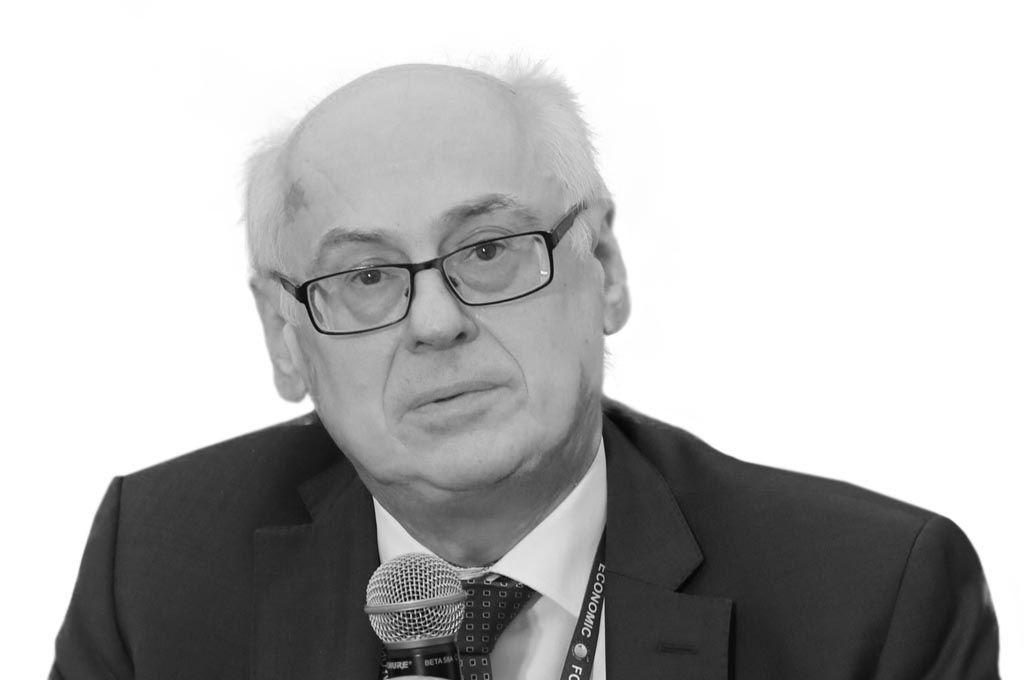by prof. Zdzisław Krasnodębski
When the financial crisis broke out in 2007, fingers were pointed at southern European countries. The situation revived the old belief about a deep cultural rift in Europe separating the ascetic, Protestant North from the sybaritic, lavish South where little regard is paid to financial and legal discipline.
Even so, people shied away from calls to exclude Italy or Spain from the EU, put screws on the countries or have them “starved” or ignored (although screws were indeed tightened in Greece). If anything, it was the South that was Eurosceptic. The Italian philosopher Giorgio Agamben said at the time that the EU does not make much sense given such glaring differences in lifestyle and values. He suggested creating a separate union of southern European states, drawing on the idea of a Latin empire advocated once by Alexandre Kojève. But what would the EU be without Italy, Spain or Greece where northern Europeans are so keen to go on vacation and whose monuments and landscapes we all admire?
Central and Eastern Europe cannot count on such leniency and kindness. Its difference has been traditionally understood as a defect or an inability to properly implement the required model that was once developed in the West and is now defined in Brussels. This way of thinking is deeply rooted in the narratives of European history. The “European” nature of countries to the east of the Elbe was showcased as a result of transposing a civilisational template or even of colonisation. Everything that drove Central Europe forward had allegedly been brought from the West, whilst whatever hampered its growth had to do with endogenous traditions. Intellectual luminaries of the Enlightenment such as Kant, Voltaire or Diderot were convinced that only enlightened despots can force such nations to follow the path of progress.
This rather crude mentality persists to this day. According to many political analysts specialising in the EU, we have achieved democracy and successful economic transformation not through our own efforts, but through “enculturation” into the Western way of life and EU subsidies. Any signs suggesting that CEE countries want to have political agency are often met with indignation as something that is almost bad form, a travesty of the spirit of history. First, the V4 irritated the West by refusing to admit immigrants, now Poland and Hungary are doing the same with their veto. Even self-reliant cooperation as part of the Three Seas Initiative raises thinly disguised concerns: how can a project that is so valuable for Europe be launched and developed independently without any supervision?
CEE states were created or reborn on the ruins of the Ottoman, Habsburg, Wilhelmine and Russian empires. It should therefore come as no surprise that they are wary of imperial oppression. Here, people are keenly aware that you cannot be free as a person if your nation is not free and that political freedom is a necessary condition of individual liberties. Imported to Europe from the USA, the idea of self-determination might have been implemented inconsistently with mistakes made along the way, but it did legitimize our freedom. The idea is not put into question even by Hungarians who suffered enormous territorial losses following the First World War. Since then there have been no emperors in Europe. However, following 1945, CEE states were again incorporated into or subjugated by the brutal Soviet empire. Their re-emergence in 1989 as free nations organized in independent states seemed to run counter to the European logic of history. The response was to be provided by the project of an enlarged Europe that is based on compromise, values diversity, rejects totalitarianism and grand-scale social experiments and guarantees in its treaties that the will of each state will be respected in strategic matters.
Today, this vision seems to move further and further away. What is becoming more pronounced is the tendency to force weaker and poorer European nations to toe the line. As we are being told, we need a Europe that is more unified and consolidated, a Europe where the principle of unanimity will cease to apply and where “European values” will be implemented according to their single, binding interpretation. In line with this interpretation, respect for human dignity does not exclude unrestricted abortion, euthanasia, production of children for different couples in need, or sex change operations on demand. Non-discrimination entails consent to same-sex marriages and adoptions. Equality between men and women consists in negating any differences between them. Human rights preclude efficient measures to curb mass immigration etc. Thus defined, “fundamental rights” are to be protected by the rule of law.
The EU is to become a great steamroller that will standardise European nations to fit this indisputable, axiological model. The problem is that we Central Europeans are allergic to received dogma, having once experienced a great experiment of progressive social engineering aimed at creating a new, better and liberated man. We know where this leads…
It is not a coincidence that this attempt at unification faces the strongest opposition from two countries: Hungary and Poland (just like it is not coincidental that the first state to have left the EU is the UK with its awareness of democratic traditions).
Let us not forget that it was the resistance of the Poles and the Hungarians, peoples with an acute sense of national identity and freedom, that broke the “Eastern bloc.” This rebellion at the periphery of the Soviet state, a region that seemed doomed to fail in a confrontation with the powerful centre, made a significant contribution to the empire’s downfall. Should this not be a warning?
Prof. Zdzisław Krasnodębski is a Polish sociologist, social philosopher, publicist and professor at the University of Bremen (Germany), who has been a Member of the European Parliament since the 2014 election.
The text is published simultaneously with the Polish journal of opinion “Wszystko Co Najważniejsze” as part of the project “We are telling the world about Poland”.

